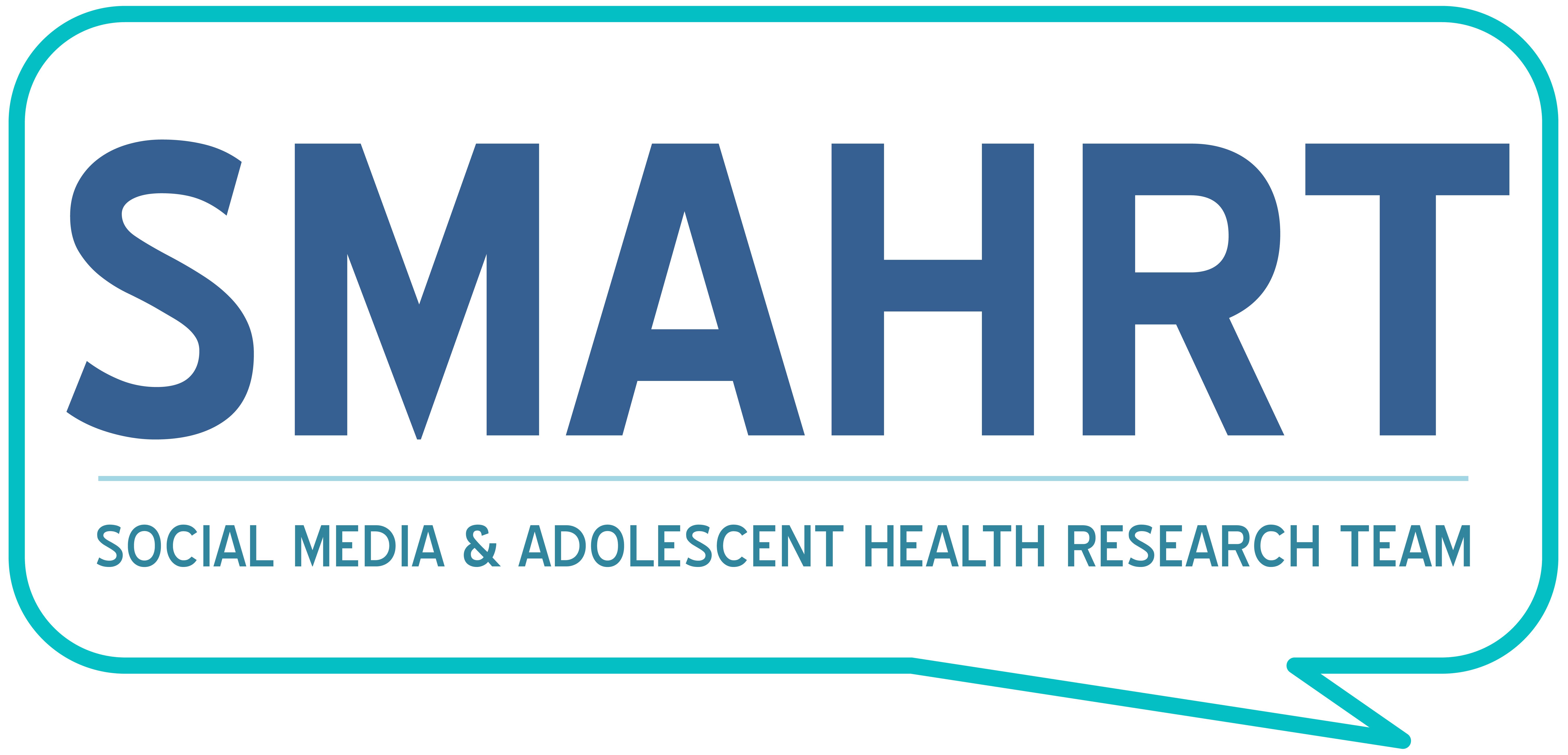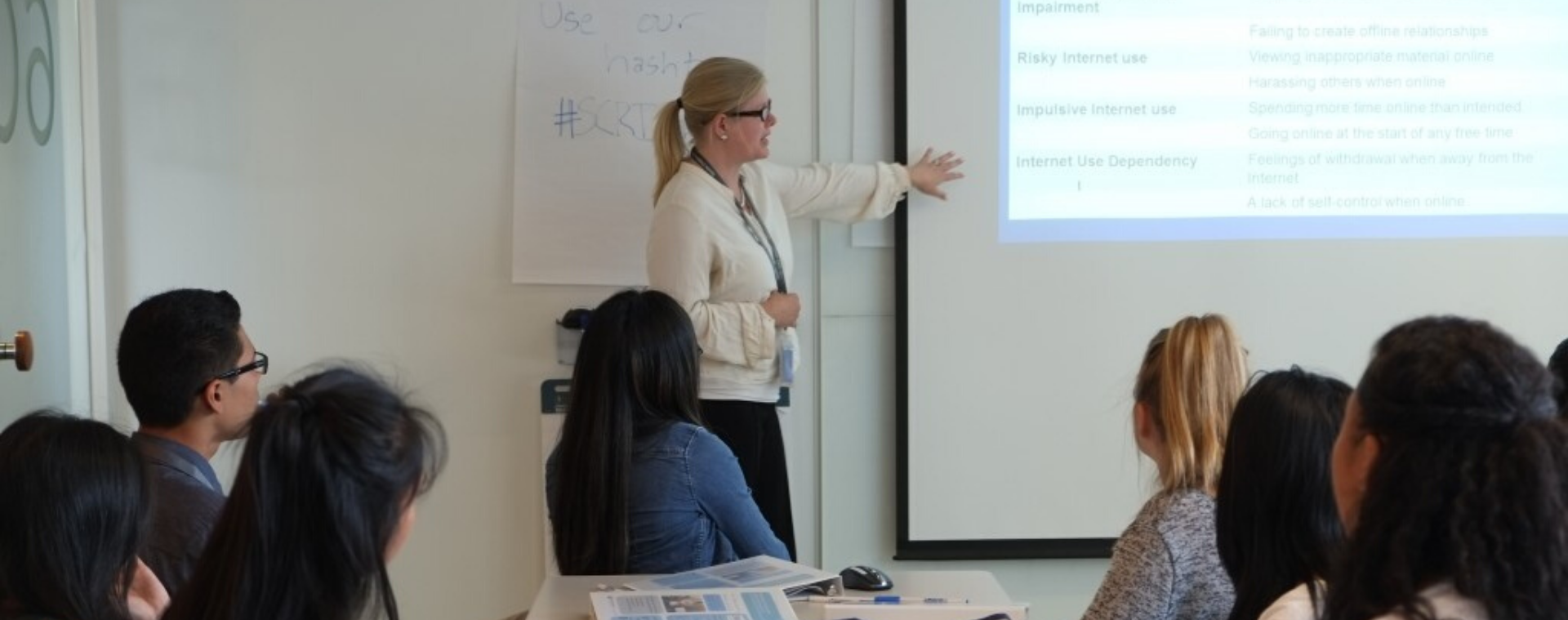Written by: Quinlan Alfredson
In 2021, 84% of 18-29 year-olds reported that they used at least one social media site. With social media usage on the rise, researchers have been working hard to discover how these platforms can affect mental health. Current news media is fast to draw the conclusion that social media usage is leading to mental illnesses such as depression and anxiety. However, when looking closer at the measurements used to denote “social media usage” such as the Bergen Social Media Addiction Scale (BSMAS), Facebook Intrusion Questionnaire (FIQ), and Problematic and Risky Internet Use Screening Scale (PRIUSS), we find that many reports are focusing on the negative and risky way social media can be used and are omitting the benefits.
Although research is aiming to draw correlations between social media and mental health, it is important to understand that social media is also a tool that can be used to benefit the user. Understanding this fact leads us to the question: How can we use social media to our advantage?
What are some tips?
Curate your feed to what makes you happy.
Unfollow accounts/people that make you feel sad, anxious, depressed, or insecure. Social media apps have algorithms to show you more content of what you interact most with, while this can be nice to make sure you see photos of your close friends and family members, if you interact with a lot of negative posts, apps like Instagram are designed to show you more negative posts. Follow accounts that make you feel good! If you could use more motivational quotes on your feed, follow an account that posts them!
Set a time limit.
If you feel like social media is interfering with your daily routine, look at your “Screen Time” and set goals to cut down. Is there a time of day you know you often use social media that you could try and avoid saving time for your daily plans? If you feel the need to pick up your phone every time you receive a notification from a social media app, reevaluate which apps you want to receive notifications from.
Personally, I noticed I was able to cut down on passive use of Instagram when I turned off my notifications from the app. I realized that, especially after I posted a picture, every time I received a notification that someone liked my photo, I was opening the app to see how many likes the photo had. This also led to mindless scrolling since the app was already open.
Research has found that limiting your time on social media can benefit mental health: “Based on the control group who maintained their normal social media usage… the experiment group who reduced daily social media usage to 10 minutes each for Facebook, Instagram, and Snapchat showed significant decreases in depression and loneliness.”
Avoid usage when you should be sleeping.
It is easy to fall down the rabbit of social media when we are lying in bed trying to sleep. If you have trouble sleeping, try to avoid social media before bed and replace it with a more relaxing activity like reading or mediation. The light from your phone screen can decrease your melatonin, making it harder for you to fall asleep. The same goes for getting out of bed in the morning, if you struggle to start your day, try waiting to check your social media until after you have gotten out of bed.
Make connections.
Social media allows us to connect with people from all over the world. Social interaction has been found to boost health and wellness. Use social media to your advantage! Connect with relatives and friends or strangers that share commonalities.
What does this mean?
Everybody has a unique experience with their own social media usage. Understanding your own usage is key to utilizing the many benefits of social media. Finally, remember, social media is only a tool, and it is how you use the tool that impacts your wellbeing.
Author’s note
I am an undergraduate student who is not only immersed in social media daily for personal life, but also research. I have observed that current research and media is quick to point out all the negative effects social media can have on adolescents and young adults, and I am driven to uncover the positives. I have found that many of these information sources reporting on the negative effects of social media are looking for negativity to begin with. When conducting a systematic review on social media and adolescent mental health, many of the included studies measured social media usage through scales that measure problematic use. Research in this field has motivated me to remind adolescents, young adults, and their parents that social media is just a tool.


